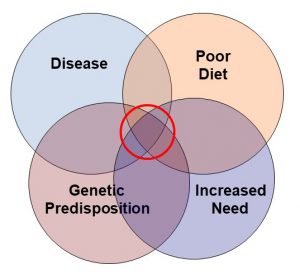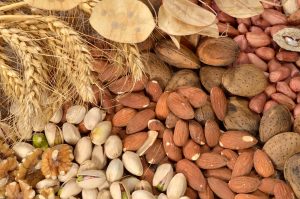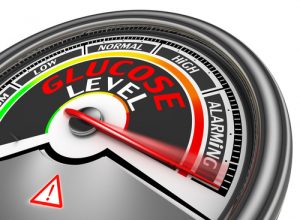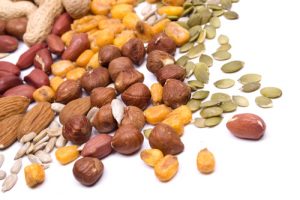Which Diet Is Best?
Author: Dr. Stephen Chaney
 Many clinical studies focus on the benefits or risks associated with individual components of our diet. For example, we have been told:
Many clinical studies focus on the benefits or risks associated with individual components of our diet. For example, we have been told:
- Saturated and trans fats are bad for us and monounsaturated and omega-3 fats are good for us.
- Sugar and refined carbohydrates are bad for us, but complex carbohydrates are good for us.
However, we don’t eat saturated fats or sugars in isolation. They are part of a diet with many other foods. Do other foods in our diet affect the risks we associate with saturated fat or sugar? We don’t know.
Simply put, we don’t eat foods, we eat diets. We don’t eat saturated fats, we eat diets. It would be more helpful for the average person if research focused on which diets are good and bad for us instead of which foods are good and bad for us.
One recent study (JM Shikany et al, Journal of the American Heart Association, 10:e019158, 2021) did just that. It evaluated the effect of 6 different dietary patterns on the risk of sudden cardiac death (dropping dead from a stroke or heart attack).
- It turns out that one of the diets significantly increases your risk of sudden cardiac death. I call that one, “A diet to die for”.
- Another diet significantly decreases your risk of sudden cardiac death. I call that one, “A diet to live for”.
- The other diets had no significant effect on the risk of sudden cardiac death.
You are probably wondering, “What were the diets?”; “Which diet is best?”; and “Which diet is worst?” I cover that below, but first we should look at how the study was designed.
How Was The Study Designed?
 The study involved 21,069 participants in the REGARDS (Reasons for Geographical and Racial Differences in Stroke) clinical trial who were followed for an average of 10 years. This clinical trial enrolled:
The study involved 21,069 participants in the REGARDS (Reasons for Geographical and Racial Differences in Stroke) clinical trial who were followed for an average of 10 years. This clinical trial enrolled:
- 30% of its participants from what is called the “the stroke belt” (North Carolina, South Carolina, Georgia, Tennessee, Alabama, Mississippi, Arkansas, and Louisiana).
- 20% of its participants from what is called “the stroke buckle” (the coastal plain of North Carolina, South Carolina, and Georgia).
- 50% of its participants from elsewhere in the continental United States.
At the beginning of the study, participants were given a medical exam and filled out an extensive questionnaire on diet.
Based on the diet analysis, the participants were ranked for adherence to six dietary patterns.
#1: The Convenience Pattern. This dietary pattern relied heavily on pre-packaged or restaurant meals, pasta dishes, pizza, Mexican food, and Chinese food.
#2: The Plant-Based Pattern. This dietary pattern relied heavily on vegetables, fruits, fruit juice, cereal, beans, fish, poultry, and yogurt.
#3: The Sweets Pattern. This dietary pattern relied heavily on added sugars, desserts, chocolate, candy, and sweetened breakfast foods.
#4: The Southern Pattern. This dietary pattern relied heavily on added fats, fried food, eggs and egg dishes, organ meats, processed meats, and sugar-sweetened beverages.
#5: The Alcohol and Salad Pattern. This dietary pattern relied heavily on beer, wine, liquor, green leafy vegetables, tomatoes, and salad dressing.
#6: The Mediterranean Pattern. Adherence to the Mediterranean dietary pattern was based on the well-established Mediterranean Diet Score.
- Points are added for beneficial foods (vegetables, fruits, legumes, whole grain cereals, nuts, and fish).
- Points are subtracted for detrimental foods (meat and dairy).
- Points are added for a high ratio of monounsaturated fats to saturated fats (think diets rich in olive oil).
- One point is added for moderate alcohol consumption, Zero or excess alcohol consumption is assigned 0 points.
The study looked at the correlation of these dietary patterns with the incidence of sudden cardiac death during the 10-year study.
A Diet To Die For
- The Southern Diet increased the 10-year risk of sudden cardiac death 2.2-fold. Basically, it doubled the risk.
-
- In people with no previous history of heart disease at the beginning of the 10-year study, the Southern Diet increased the risk of sudden cardiac death by 2.3-fold.
-
- In people with a previous history of heart disease at the beginning of the 10-year study, the Southern Diet increased the risk of sudden cardiac death by 2-fold.
- The Mediterranean Diet decreased the 10-year risk of sudden cardiac death 41%.
-
- In people with no previous history of heart disease at the beginning of the 10-year study, the Mediterranean Diet decreased the risk of sudden cardiac death by 51%. Basically, it cut the risk in half.
-
- In people with a previous history of heart disease at the beginning of the 10-year study, the Mediterranean Diet decreased the risk of sudden cardiac death by 23%, but that decrease was not statistically significant.
- None of the other diets had a significant effect on the 10-year risk of sudden cardiac death.
In the words of the authors, “We identified a trend towards an inverse association of the Mediterranean diet score and a positive association of adherence to the Southern dietary pattern with risk of sudden cardiac death.” [That is a fancy way of saying the Mediterranean diet decreased the risk of sudden cardiac death, and the Southern dietary pattern increased the risk of sudden cardiac death.]
Which Diet Is Best?
 The Mediterranean Diet Is Best: In this analysis of the effects of 6 different dietary patterns on the risk of sudden cardiac death, it is obvious that the Mediterranean diet is best. It cut the risk of sudden cardiac death in half.
The Mediterranean Diet Is Best: In this analysis of the effects of 6 different dietary patterns on the risk of sudden cardiac death, it is obvious that the Mediterranean diet is best. It cut the risk of sudden cardiac death in half.
This should come as no surprise:
- I have reported on a previous study showing that the Mediterranean diet decreases the risk of heart disease by 47%.
- In the Woman’s Health Study the Mediterranean diet decreased the risk of sudden cardiac death by 36%.
- In the Nurses’ Health Study there was an inverse association between the Mediterranean Diet Score and sudden cardiac death.
The Southern Dietary Pattern Was Worst. It doubled the risk of sudden cardiac death. As someone who grew up in the South, this comes as no surprise to me. Let me count the ways:
- It starts with a breakfast of fried eggs, grits with “red-eye gravy” (a mixture of ham drippings and coffee), ham or sausage, and biscuits made with lots of lard and sugar.
- When I was growing up, a snack might be an RC cola and moon pies (look that one up).
- Dinner might be fried chicken and hushpuppies or fried fish and hushpuppies.
- Instead of picnics we have pig pickins (which is pretty much what it sounds like).
- And we boil our vegetables with fatback (pig fat) and sugar.
I could go on, but you get the picture. Don’t get me wrong, I have fond memories of the foods I ate while growing up in the South. I just don’t eat them much anymore.
Why Didn’t The Plant-Based Dietary Pattern Score Better? One of the surprises from this study was that the Plant-Based Dietary Pattern didn’t score better. After all, numerous studies have shown that mostly plant-based diets reduce the risk of heart disease. Why did it strike out in this study?
My feeling is that the study did not adequately describe a true Plant-Based Dietary Pattern. As I described above, participants following the Plant-Based Dietary Pattern were identified as having above average consumption of vegetables, fruits, fruit juice, cereal, beans, fish, poultry, and yogurt compared to others in this study. I have two concerns with this classification.
- As described, this is a semi-vegetarian diet, while the best results for reducing heart disease risk are seen with strict vegetarian and lacto-ovo-vegetarian diets.
- However, my biggest concern is that we don’t know what other foods they were consuming. Were they also consuming convenience foods? Were they consuming sweets? We don’t know.
That is very different from the two dietary patterns that stood out in this study.
- 50% of the participants in this study came the Southeastern region of the United States. So, when the study identified participants as following a Southern Dietary Pattern based on a few southern foods, it is likely that those participants ate many other southern foods as well.
If 50% of the participants in the study had come from the Loma Linda area of California where vegetarianism is much more common, the study might have done a better job of identifying participants consuming a plant-based diet.
- While participants consuming the Mediterranean diet were more scattered geographically, the Mediterranean Diet Score used to identify people consuming a Mediterranean diet is much more detailed and has been validated in numerous previous studies.
In short, the Southern and Mediterranean Dietary Patterns may have stood out in this study because they provided a more precise distinction between those consuming a Southern or Mediterranean diet and those following other dietary patterns. If the Plant-Based Dietary Pattern had been more precisely described, it might have shown a statistically significant benefit as well.
The Bottom Line
Many clinical studies focus on the benefits or risks associated with individual components of our diet.
However, we don’t eat foods, we eat diets. It would be more helpful for the average person if research focused on which diets are good and bad for us instead of which foods are good and bad for us.
One recent study did just that. It evaluated the effect of 6 different dietary patterns on the risk of sudden cardiac death (dropping dead from a stroke or heart attack).
- It turns out that the Southern diet doubles your risk of sudden cardiac death. I call that one, “A diet to die for”.
- In contrast, the Mediterranean diet cuts your risk of sudden cardiac death in half. I call that one, “A diet to live for”.
- The other diets had no significant effect on the risk of sudden cardiac death.
For more details on the study, why the Southern diet is so bad for us, and why the Mediterranean diet is so good for us, read the article above.
These statements have not been evaluated by the Food and Drug Administration. This information is not intended to diagnose, treat, cure, or prevent any disease.
































